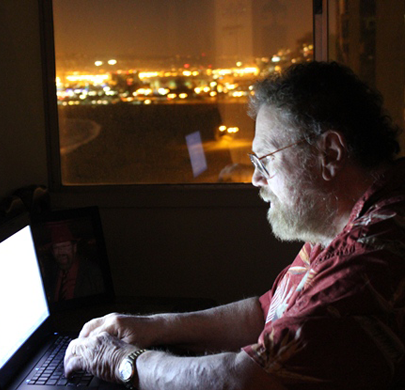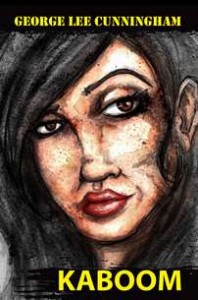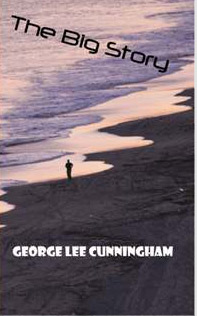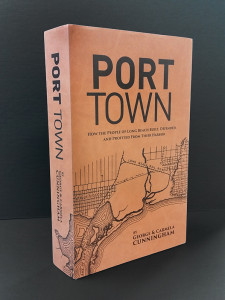ARCHIVED POSTS
-
May 4, 2018
LYRICS, POETRY AND PROSE 180504
A place to share some words of beauty, inspiration, and life. Today’s lyrics celebrate the corrupt and beautiful state of Louisiana – a place of wonderful music, delicious cuisine, and a “Joie de Vivre” toward love and life. This week we offer Bob Dylan singing about the House of the Rising Sun, Hank Williams singing about life on the bayou, and Mel McDaniel and Hank Williams Jr., singing about Lousiana Saturday night. Click on the name of the piece to get a video or more information.
Now the only thing a gambler needs
Is a suitcase and a trunk
And the only time he’s satisfied
Is when he’s on a drunk
He fills his glasses up to the brim
And he’ll pass the cards around
And the only pleasure he gets out of life
Is ramblin from town to town– The House of the Rising Sun Singer: Bob Dylan
Goodbye Joe me gotta go me oh my oh
Me gotta go pole the pirogue down the bayou
My Yvonne the sweetest one me oh my oh
Son of a gun we’ll have big fun on the bayou
Jambalaya and a crawfish pie and filé gumbo
Cause tonight I’m gonna see my ma cher amio
Pick guitar fill fruit jar and be gay-o
Son of a gun we’ll have big fun on the bayou– Jambalaya (On the Bayou) Singer: Hank Williams
Well, you get down the fiddle and you get down the bow
Kick off your shoes and throw them on the floor
Dance in the kitchen till morning light
Louisiana Saturday night
My brother Bill and my other brother Jack
Belly full of beer and a possum in a sack
Fifteen kids in the front porch light
Louisiana Saturday night– Louisiana Saturday Night Singer: Mel McDaniel and Hank Williams Jr.; Writer: Bob Mcdill
-
March 15, 2018
Is World Going Faster Or Am I Slowing Down?
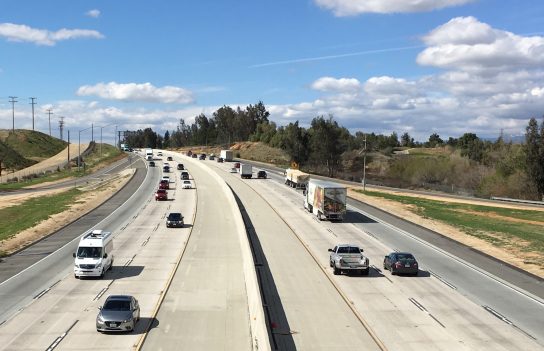
ON THE ROAD AGAIN / Photo by George Cunningham
Sometimes in life, there may be more than one way of looking at things, and all of them can be right. Take traffic, for instance. Driving across country, it seems to me that people are driving faster and faster and closer and closer together.
I’m not the only one thinking this.
Economics professor Sam Peltzman first described this in a paper he published in 1975 that suggested that as cars become safer, drivers are more willing to take more chances on the highway. This became known as the Peltzman effect. I think the professor was on to something, although traffic deaths have gone down during the ensuing years – partly because of vehicle safety standards, a crackdown on drunk driving, restricting teen access to booze and fewer teens behind the wheel.
On the other hand, traffic engineers say that speed limits do little to make highway safer, since drivers tend to ignore such limits and end up driving at whatever speed seems safe to them. As evidence, they cite President Jimmy Carter’s ill-fated attempt to impose a 55 mph speed limit in order to save gasoline. After a short period everybody was ignoring the new limit and driving at the same speeds they were prior to the presidential edict.
When you chart the speed at which people drive in the real world, you find a big difference between the slow drivers and the fast drivers. But one thing they have in common is that they’re both dangerous.
Traffic engineer and consultant Tom Sohrweide says lowering the posted speed limit does not slow down traffic or increase safety, and raising the posted speed limit does not make people drive faster. Studies have shown that 85 percent of motorists drive at around the same speed, no matter what the posted limit is. And this turns out to be the safest speed. The speedsters and the slow pokes have the most accidents because the speedsters are going so fast they have to weave in and out of traffic and the slow pokes are getting in everybody’s way and causing accidents.
As cars become faster and safer, drivers are inclined to increase their speed. But even as the average driver goes faster, they are still safer than drivers that are either going faster than the flow of traffic or slower.
None of which seems to contradict what Sam Peltzman said more than 40 years ago.
Unfortunately, as the world is going faster and faster, I am getting older and older. My personal strategy has been to go as fast as everybody else, but I give myself an edge by leaving more room between me and the drivers ahead of me.
Of course that doesn’t do much to stop some of the speedsters from running up on my tail or some of the slow pokes from getting in my way. Like we used to say in the 60s. You ride with the tide and you go with the flow.
And you try not to do something stupid along the way.
Do you have a dissenting opinion or any opinion at all on the subject? Contact me at george@georgeleecunningham.com and let me know. Meanwhile, you can always subscribe and get an email reminder of blog postings. Your name will not be shared and you may cancel at any time.
-
LYRICS, POETRY AND PROSE 180315
A place to share some words of beauty, inspiration, and life. Today’s lyrics focus on wanderlust – that itchy feeling telling you that it’s time to move on, to see new places, and leave the old places and people behind. This week we offer Hank Snow singing about moving on from love gone bad; Johnny Cash recounting all the places he has visited; and John Prine waxing poetic about the lost world of the hobo. Click on the name of the piece to get a video or more information.
That big eight wheeler rollin’ down the track
Means your true lovin’ daddy ain’t comin’ back
‘Cause I’m movin’ on I’ll soon be gone
You were flyin’ too high for my little old sky
So I’m movin’ on
That big loud whistle as it blew and blew
Said hello to the Southland we’re comin’ to you
And we’re movin’ on oh hear my song
You had the laugh on me so I’ve set you free
And I’m movin’ on– I’m Moving On Singer and Writer Hank Snow
I’ve been everywhere, man
I’ve been everywhere, man
Crossed the deserts bare, man
I’ve breathed the mountain air, man
Travel, I’ve had my share, man
I’ve been everywhere– I’ve Been Everywhere Singer Johnny Cash; Writers Geoff Mack and Michael J. Faubion
Down through the years
Many men have yearned
For freedom
Some found it
Only on the open road
So many tears of blood
Have fell around us
’cause you can’t always do what you are told.– Hobo Song Singer and Writer John Prine
-
February 11, 2018
Killers of the Flower Moon
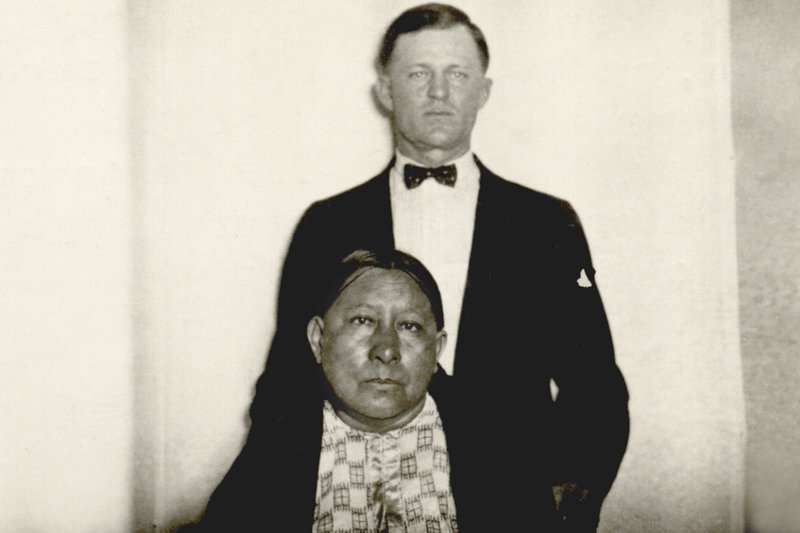
MOLLIE BURKHART AND HER HUSBAND ERNEST. HER MOTHER AND THREE SISTERS WERE KILLED BEFORE HER HUSBAND WAS ARRESTED. SHE WAS BEING SLOWLY POISONED BY THE FAMILY DOCTOR, WHO TOLD HER SHE WAS RECEIVING MEDICINE FOR HER DIABETES. ERNEST LATER CONFESSED AND WAS SENTENCED TO LIFE IN PRISON. — Oklahoma Historical Society, Oklahoman Collection
I have never been a believer in the goodness of people.
Folks who go around saying “people are basically good,” have obviously come from some alien planet and have never met an authentic human being or they are massively self-deluded. We humans may do nice things once in a while, but we didn’t climb down from the trees and take over the world by being nice. Not then, not now.
What helps us transcend our base nature is culture and self-control. Culture at its best helps us live to a standard of decency, helps us to cooperate with one another and to overcome our reptilian instincts. At its worse, it inspires just the opposite.
One of the things that makes this depressingly clear is a well-researched book by author David Grann titled: Killers of the Flower Moon. It tells the story of the Osage Indians in 1920s Oklahoma. It’s one of those books that you read and then several days later you’re driving down the street or shopping for groceries and you’re still thinking about it. It’s a good book, but it is disturbing.
When the federal government in the 1870s decided to relocate the Osage Indians to a designated barren area in northern Oklahoma, the Indians negotiated a deal to retain the mineral rights. The government wanted to wean the Osage from their traditional culture and introduce them to private ownership of property, so the area was divided into privately owned tracts among the members of the tribe. Children were forced to undergo education to teach them how to conduct themselves in a modern English-speaking society. And since Indians were still considered savages, the Indians’ financial decisions and investments were to be dictated by white trustees.
But then the Indians struck it rich. In the early 20th Century oil was discovered beneath their ground and soon the Osage tribal members constituted one of the richest societies on the planet.
Although by the 1920s America was a relatively modern society, in the interior Western states the frontier mentality was still very much alive. White trustees – prominent ranchers, merchants, attorneys, physicians, and other respectable folks – oversaw the Indian’s finances and wealth. The trustees, who were supposed to protect the naïve Indians from making stupid choices, instead stole from the Indians in big ways and small – overcharging for goods and services and sometimes cooking the books. They also conspired with young male relatives to romance and marry Indian women. Then one by one they would kill off the members of the family until the white husband would be the only heir to all the oil wealth.
The trustees were aided in this practice by local lawmen, who looked the other way, physicians who would supply drugs to slowly poison members of rich Indian families, and judges who always sided with prominent white men over Indians.
In the bloody history of the 20th Century, the killing of Indians in Osage County might be considered an ugly footnote. At the most, there were probably only a hundred or so Indians killed.
What happened to the Osage Indians in the 1920s obviously doesn’t compare with the genocide of Jews in Germany, the killing of Armenians by the Turks, the bloody purges of political dissidents in the Soviet Union under Stalin and in China under Mao, or the wide-spread killing of educated Cambodian people by the Khmer Rouge.
Two things make the tragedy of the Osage Indians different. One is that it happened in America. And two is that it was a community affair, with lots of people who either participated in plots to kill entire Indian families or knew what was going on and looked the other way.
The killing of Indians was finally broken up by the newly formed Federal Bureau of Investigation. A team of investigators led by former Texas Ranger Tom White, worked around the clock to unravel the murders despite bureaucratic interference from the FBI’s young boss, J. Edgar Hoover.
In the end, some ringleaders were tried for murder and imprisoned, but many of the murders went unsolved and most of the participants escaped punishment. The ugly history of that time remains a bitter memory among descendants of the victims.
The book is disturbing. Civilization should make us better than this, and usually it does. But sometimes, it merely helps us excuse such behavior.
Osage County in Oklahoma during the 1920s was one of those times.
Do you have a dissenting opinion or any opinion at all on the subject? Contact me at george@georgeleecunningham.com and let me know. Meanwhile, you can always subscribe and get an email reminder of blog postings. Your name will not be shared and you may cancel at any time.
-
LYRICS, POETRY AND PROSE 180211
A place to share some words of beauty, inspiration, and fun. This week we have music by singer-songwriter Tish Hinojosa, who has been around a couple of decades, but whom I had never heard of because I was working too damn hard. I actually met Ms. Hinojosa last week up in Joshua Tree where she was doing a concert at the Beatnik Lounge. She is a middle-aged lady now with grown children, but she retains her same lovely voice and artistic vision. You can check her out and buy some of her CDs at her website at http://www.mundotish.com/ Click on the name of the piece to get a video.
‘Cause there’s something in the rain
But there’s more here in our hands
‘Buelita’s right about the sins of man
Who’s profits rape the landAnd the rains are pouring down
From the growers to the towns
And until we break the killing chains
There’s something in the rain– Something in the Rain Singer and Writer Tish Hinojosa
It’s the way of life in the real West
‘Neath the Prairie moon that’s Heaven blessed
And a tall boot shuffle on a wooden floor
It’s a clean white shirt on a Saturday night
And a long cold beer that’s pure delight
And if you heard me say it, there’s a whole lot more– In the Real West Singer and Writer: Tish Hinojosa
One more year rolls down the Rio Grande
Our forefathers crossed the muddy line
Pilgrims passing leaving tracks in time
One more takes a stand by the water by the landShifting like the sand by the Rio Grande
An unbroken chain snow and tears and rain
Cutting through my soul and to my veins
Then the water’s rise paint the Rocky Mountain skies– By the Rio Grande Singer and Writer: Tish Hinojosa
(English translation)
Tell me that you love me
Like that night
With those kisses at that certain place
Paint me mountain and desert
Starry skies on the horizonTell me that night; Tell me with love
– Aquella Noche Singer and Writer: Tish Hinojosa

